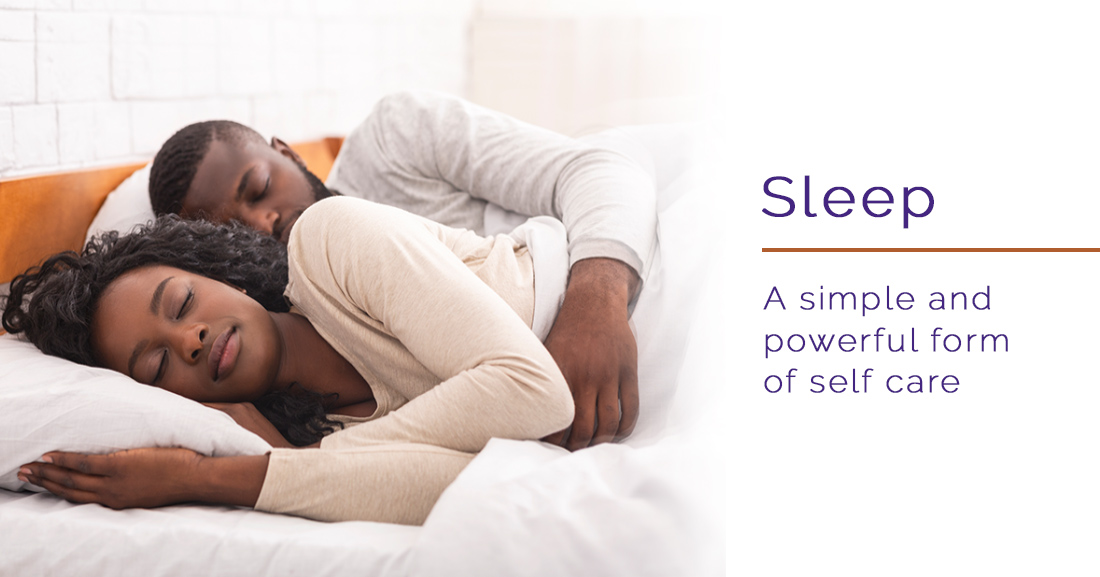
22 Sep Sleep – Simple, Powerful Self Care
Sleep is essential to good health because it enables the body to repair and be fit and ready for another day. It is a vital component of every person’s overall health and well-being, yet it is often neglected.
Low grade chronic sleep deprivation is rising to epic proportions in the US as an important and potentially correctable behavioral factor that greatly inhibits daily activity, and is linked with many chronic diseases and conditions, including: type 2 diabetes, heart disease, obesity and depression.
Adequate sleep is an essential aspect of creating a culture where wellness is crucial to the development of human potential. Daily recommended amounts include: at least 10 hours for school-age children, 9-10 ½ for teenagers and 7-8 hours for adults. Benefits include:
Fewer colds
You are more likely to get sick from an infection if you haven’t slept enough, and you may take longer to recover
Improved Mood
Over time, sleep deprivation can lead to mood disorders like depression or anxiety
Fewer Wrinkles
The body releases the stress hormone Cortisol when it has not had enough sleep, which can break down collagen, a substance that helps keep your skin smooth
Fewer Accidents
Sleepy drivers cause at least 100,000 highway crashes every year<
A Healthier Heart
Statistics show that people who sleep less than 6 hours per night are at a higher risk of developing heart disease
A Healthier Sex Life
Lack of sleep can affect testosterone levels and make both women and men feel less inclined toward physical intimacy
Reduce Risk of Diabetes
With less than 5 hours of sleep per night, the body doesn’t use glucose (its main fuel source) and over time that can boost your chances of getting diabetes
Improved Weight Maintenance
The body requires approximately 8 hours of sleep per night to properly manage insulin levels, so less sleep can cause an overproduction of insulin that leads to weight gain and an imbalance in hunger hormones, which leads to cravings for high-fat, high-sugar foods
Improved Memory
An adequate amount of sleep strengthens the links between the brain cells that form memories, which enhances learning, making it easier to learn & retain new information
Improved Judgement & Decision-Making
Overworked and exhausted brain cells can’t organize or recall things you thought you knew, which makes it hard to make a sound decision because you can’t trust your own judgment
Here are some simple tips for better sleep, from setting a sleep schedule to including physical activity in your daily routine:
- Stick to a routine – go to bed and wake up at the same time every day, even on weekends
- Stay quiet and relaxed as bedtime approaches
- Pay attention to what you eat and drink (avoid sugar, caffeine or other stimulants)
- Dim bright lights
- Avoid doing anything stressful for at least one hour before bedtime
- Skip naps if you have trouble falling to sleep at bedtime
- Move around every day – rigorous exercise seems to work best, but any kind of exercise helps
- Keep your bedroom cool, ideally between 60-67 degrees
